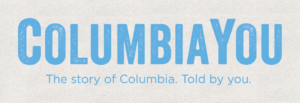INFORMATION SHEET AND
APPLICATION FOR “COVERING RELIGION”
SPRING 2020
PROFESSORS ARI L. GOLDMAN,
GREG KHALIL AND DUY LINH TU
GRADUATE SCHOOL OF
JOURNALISM, COLUMBIA UNIVERSITY
- Info Session: Tuesday, November 5, 12;30 p.m., Room 601B
- Application Deadline: Monday, November 18, 9 a.m.
“Covering Religion” aims
at preparing students to write about religion with intelligence and
sophistication for secular media outlets in the U.S. and around the world. In
the Spring 2020 semester, the class will focus on the role of religion in the
American South with special (but not exclusive) attention to the 2020
Presidential election. Thanks to a generous grant from the Scripps Howard
Foundation, the course will include a 10-day study-tour of two Southern states,
Louisiana and Mississippi, at virtually no cost to students. (The minimal
expenses that students will incur are described below.)
The study-tour will take
place over Spring Break, with the weekends before and after the break used for
travel. The tentative dates are March 13 to March 23, 2020. The first seven
weeks of the course will be spent reporting on religious diversity in the
greater New York area. At the beginning of the term, each student is assigned a
faith, or a sect of a faith, in which to specialize. While a primary focus of
the semester will be on the region’s diverse Protestant and Catholic
communities, the class will also look at minority faiths like Judaism, Islam,
Hinduism and others. In addition to their reporting and writing projects, each
student will make an oral presentation in class about his or her assigned
faith. While still in New York, students will identify and begin to report on
the stories that they want to cover while traveling in the South. (The stories
they report on the trip will not necessarily be on their faith beat.)
We believe that this
spring is a particularly good time to look at the role of religion in the
Southern states, especially as we approach the 2020 presidential election. It
is clear that the Evangelical support for Donald Trump was one of the stories
overlooked during 2016 election. This factor was one of the reasons that
Trump’s victory caught much of the news media by surprise.
The 16 members of
Covering Religion class will travel as a group for parts of the trip, visiting
houses of worship and speaking with religious leaders. But there will also be several
“reporting days” for students, working alone or with a partner, to pursue their
reporting projects. Students in the class will have the opportunity to work in
print, audio or video.
During the 2020 trip, the
class will maintain a website that will include daily updates from our travels.
Each day on the trip, one student will be responsible for reporting on that
day’s activities and posting the story on the Web. In addition, two students
serve as Webmasters and others coordinate photographs, video and social media.
Upon returning from the study-tour, students will complete and post their major
reporting projects from the trip. (The Websites from previous years can be
found at www.coveringreligion.org.)
Here are a few additional
points —
- Class size: The class is limited to
16 students drawn from the M.S. Program.
- Dates for the trip: The trip roughly
takes place over spring break, making use of the weekends before and after for
travel time.
- Full-time and part-time
students in the M.S. Program & M.S. Data Journalism programs are invited to
apply.
- The class meets for 15 Tuesdays, from roughly 9:30 a.m. to 2:30
p.m., beginning on Jan. 28.
- Academic Requirements: All students must
be up-to-date on assignments for all other classes. No student on academic
probation or academic warning will be allowed to go on the trip.
- Composition of the class: We are looking for
a group of students that will reflect the diversity of the school in terms of
gender, language skills, travel experience, region of the United States and
country of origin. No prior travel experience is necessary.
- Cost to students: The Scripps Howard
Foundation grant pays for airfare, hotels, transfers and two meals a day. Students
can apply for extra money for other reporting excursions during the class trip.
Students will have to arrange their own travel to and from the airport in New
York.
- Application process: Please fill out the
on-line application at http://bit.ly/CUJ_religion.
It asks for a 500-word
essay on why you would like to be considered for the class. It should include
personal information as well as a statement about what contemporary religion
story you would cover in the South if you had the opportunity.
Good luck. We look
forward to reading your application.
DEADLINE: November 18,
2019, 9 a.m.
